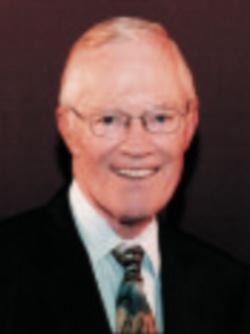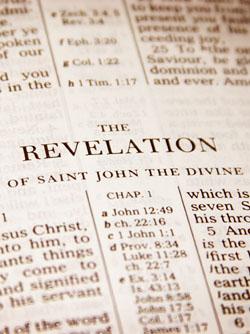God, Religion and the European Union
This revival will be aided by a church led by an influential religious figure (Daniel 7:7–8; Revelation 13; 17). These prophecies are coming alive in news-making events today!
Powerful forces are working together in the hope of achieving European political unification within the decade. Germany will be spearheading this effort during its six-month term at the helm of the European Union in the first half of 2007. The Vatican is also putting its weight and influence behind the attempt to pull nations of Europe into a closer union. Bible prophecies have long indicated that just before the end of this age, the world will see the revival of a powerful entity in Europe that will rise from the roots of the Roman Empire (Daniel 2:40–45). This revival will be aided by a church led by an influential religious figure (Daniel 7:7–8; Revelation 13; 17). These prophecies are coming alive in news-making events today!
Germany Takes the Lead
In January of this year, as Germany began its latest term at the E.U. presidency, German chancellor Angela Merkel said she hoped to use the office to promote greater political unity in Europe, and to revive the E.U. constitution that was shelved in 2005 following its rejection by French and Dutch voters. Press reports concur, "Germany will use its presidency of the EU… to push for a full version of the mothballed European constitution" (The Times, December 4, 2006). To date, 18 nations have ratified the constitution; however, the document must receive unanimous approval by all E.U. nations to become official. While Germany and France have previously worked together to build the E.U., Germany now appears reluctant to wait on the French. Merkel has stated, "Germany has other friends besides France" (International Herald Tribune, April 22–23, 2006). Italy's prime minister, Romano Prodi, commented in a speech in Berlin, "Because of the part we have played in the past and are continuing to play today, Italians and Germans—together—have the historical and, I would say moral, duty to take on the responsibility to restart the process of political and institutional integration" (www.socialistgroup.eu). Mr. Prodi urged his audience in Berlin "to be bold" and "do something courageous" as they "relaunch our common project" (ibid.). Speaking at a congress in Portugal, Prodi proclaimed, "2007 must be the year for the re-launch of Europe." One German diplomat, noting the weakness of Europe's current leaders, said Germany "can bring this forward faster than anyone realizes" (The Times, December 4, 2006).
The Timetable
The next several years could prove to be momentous for Europe and the world. One expert states, "The leaders of France and Germany have agreed [to] a new timetable for trying to revive the EU constitution… Both leaders [Jacques Chirac and Angela Merkel] agreed… that the constitutional treaty will be reviewed during the German presidency… Under the French presidency, in the second half of 2008, the discussion process will be brought to a conclusion and concrete decisions taken" (euobserver.com, June 7, 2006). Chirac said he "trusts the German presidency to steer the ship in the right direction" (ibid.). German foreign minister Frank-Walter Steinmeier has stated, "We need a constitution as soon as possible… so we can benefit from better representation in foreign policy and security issues" (euobserver.com, September 5, 2006). Steinmeier also "indicated that Berlin will present a 'strategic plan' for ratification of the constitution at the end of its presidency, in early summer 2007" (euobserver.com, April 7, 2006). The bottom line of all these negotiations is that "Germany wants to have the EU constitution ratified across the EU by 2009" (ibid.).
The Religion Factor
In the 50 years since the Treaty of Rome was signed in 1957, European leaders have tried to build a united Europe on a secular foundation of treaties and economic regulations. These efforts, however, have not been adequate to do the job. Now the efforts will include another factor—religion. Chancellor Merkel "has spoken out in favor of a reference to God in the constitution… It is the first time Berlin has spoken out in favor of a Christian reference in the EU constitution" (euobserver.com, May 26, 2006). Merkel, the daughter of a Protestant pastor, reiterated her views after a summer audience with German-born Pope Benedict XVI: "I underlined my opinion that we need a European identity in the form of a constitutional treaty and I think it should be connected to Christianity and God, as Christianity has forged Europe in a decisive way" (euobserver, August 29, 2006). Germany should find support in this endeavor from predominantly Roman Catholic countries like Spain, Italy and Poland, which backed an earlier attempt to refer to Christianity and God in the constitution.
The appeal to the unifying power of religion is no surprise. Jacques Delors, former president of the European Commission, saw the necessity for Europe's builders "to give a soul to Europe, to give it spirituality and meaning" (cec.kek.org). In order to tap the power of religion to revive the constitution and restart the European integration process, the Conference of European Churches has committed itself "to contribute to the construction of a Europe in which we can feel at home and be proud of. Churches together with their related organizations and agencies are ready to be the partners of the European political institutions" (ibid.). European Union Commissioner Jan Figel told a group of 60 European church leaders, "European Institutions need to be in constant dialogue with churches, communities of faith and civil society" (christiantoday.com). European bishops have set up a high-profile group—consisting entirely of Roman Catholics—to urge the inclusion of a reference to Christianity and influence "a political declaration of the EU's values and ambitions" in Berlin on March 25, 2007—the 50th anniversary of the Treaty of Rome which laid the foundation of the present E.U. (euobserver.com, September 11, 2006). The bishops' text states, "the Christian imprint on the European project has been an indisputable fact… the union's founding fathers… were led by values such as human rights, the rule of law, solidarity, subsidiarity… and democracy… these values correspond to Catholic social teaching" (euobserver.com, December 19, 2006). All immigrants coming to Europe will be required to conform to these values (euobserver.com, May 16, 2006).
The increasingly visible efforts of religious figures—especially Roman Catholic leaders—to revive the European constitution after it was rejected by French and Dutch voters, and was declared "dead in the water" by several political leaders, fits with long-pondered prophecies about the end of this age. The Apostle John wrote of a leopard-like beast (a political-economic-military entity) who receives a deadly wound that is surprisingly healed, and of a lamb-like beast (a religious entity) who plays a role in healing the wound, gives life to the beast and causes the world to worship the first beast (Revelation 13:1–15). John also reveals that political leaders associated with this beast will have intimate dealings with a large church organization that promotes and influences this end-time beast power (Revelation 17:1–2). If the European constitution is revived, and nations of Europe again proceed toward a political union, it could well be attributed to the power of religion. The Roman Catholic church, which played a unique role in crowning emperors of the Holy Roman Empire, is again in a unique position to aid Europeans in their quest for unity—and make ancient prophecies come alive!






